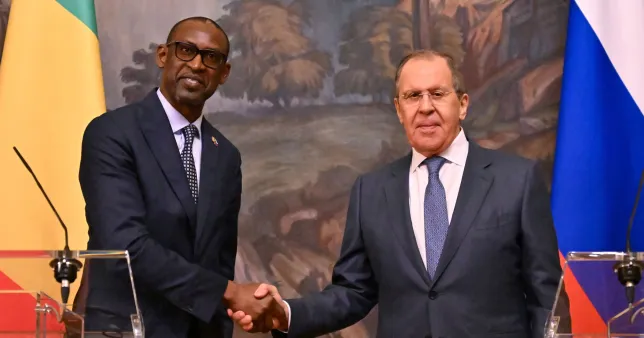Officials from the Ministry of Defence unintentionally transmitted emails to a nation that supports Russian President Vladimir Putin that contained confidential material.
The Times was the first to expose the error, which saw authorities email Mali in Africa rather than the US troops.
Staff typed “.ml,” the country code for the West African nation, instead of the military’s “.mil” domain while sending emails.
Officials have opened an investigation even though the’small number of emails’ didn’t contain any information that may endanger national security.
A representative for the MoD stated, “We have opened an investigation after a small number of emails were accidentally forwarded to an incorrect email domain.”
We are certain that they didn’t include any material that may jeopardise technical or operational security.
The email servers are secured and “designed to minimise the risk of misdirection,” the official insisted, adding that they are locked away.
The MoD “reviews its processes continuously and is currently working on a programme of work to enhance information management, data loss prevention, and the control of sensitive information,” they added.
The incorrect emailing of Mali by British defence personnel is not unique. Over a decade ago, the US military’s email account resulted in millions of communications reaching the country.
Last month, The Financial Times claimed that the ‘typo leak’ involved extremely private emails being sent to the ‘.ml’ email address, including passwords and trip itineraries, as well as diplomatic and medical records.
A Dutch internet entrepreneur named Johannes Zuurbier was hired to oversee Mali’s national domain, and he frequently brought up the matter in Washington.
Approximately 117,000 misdirected emails, many of which were sent by military recruits, travel agencies, US intelligence personnel, and others, were allegedly intercepted by him in January alone.
Six African nations, including Mali, will get free grain shipments for the next four months, according to a commitment made yesterday by Russian President Vladimir Putin.
Putin said at the Russia-Africa meeting in St. Petersburg that Western hypocrisy, not Russia’s conflict with Ukraine, was to blame for problems with the food supply chain.
Nevertheless, just 17 heads of state were present when Putin spoke, which is fewer than the number of African leaders who attended the inaugural meeting in 2019.
It happened a few days after Moscow revoked the agreement that had allowed Ukraine to transport its grain by sea despite Russia’s naval blockade, which helps feed millions of people throughout the world.
Mali and Russia have a long history of friendly relations. According to a research by the Stockholm International Peace Research Institute, Russia provided Mali with the most weapons from 2017 to 2021.
The secretive and momentarily mutinous mercenary organisation Wagner has also dug themselves deep into Mali.
According to independent experts consulted by the UN Human Rights Council in January, the UN has charged Wagner mercenaries with committing war crimes and crimes against humanity, many of which were committed against civilians.
The UN experts stated, “We are particularly alarmed by credible reports that over the course of several days in late March 2022, Malian armed forces together with military personnel thought to be members of the Wagner Group executed several hundred people, who had been rounded up in Moura, a village in central Mali.”
For a response, the Mali government has been approached.

